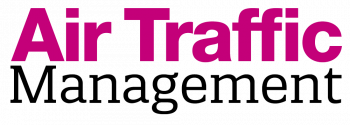Verizon received the International Standards for Business Aircraft Operations (IS-BAO) registration for best practices for its commercial drone program. Verizon is the first corporate drone program to achieve the IS-BAO registration for its drone operations and only the second drone operator in the U.S. to receive the registration. The independent audit validates the high safety and governance standards of Verizon’s drone program and provides the opportunity to expand future drone operations into more complex areas, such as flights beyond visual line of sight.
Verizon utilizes drones across several critical business functions, including extensive support of its network. Since the program’s inception in 2017, there have been more than 17,000 flights that total over 4,000 flight hours. Verizon’s drones fly in every season to perform network testing and performance monitoring. The drones collect imaging in conjunction with software that creates 3D models of the infrastructure, which enables more efficient and rapid network deployment upgrades and infrastructure inspection. Instead of having an engineer climb a tower or a rooftop, the engineer can use a drone to perform those inspections. By flying a drone, the work is done more quickly, safely and more inspections can be done in a day, accelerating the progress of the work. Verizon also uses its drones to rapidly restore its customer’s ability to access Verizon's network when natural disasters strike.
“This achievement demonstrates that Verizon is truly operating above and beyond the current legal standards for commercial drone operations and that we are deploying drones to the same high standards as traditional commercial aviation,” said Dustin Schocken, head of Verizon Drone Use and Compliance (VZDUC). “These results validate Verizon’s advanced Safety Management System and the entire operating ecosystem in which we fly drones to support our business and our customers.”
IS-BAO Programme Director, Andrew Karas said, “Congratulations to Verizon Aviation RPAS for achieving IS-BAO and for their commitment to safety. The Verizon team worked hard for this accomplishment and provided valuable input to IBAC for RPAS safety standards development, similar to our manned operator standards, and reflect efforts made for the industry, and by the industry.”
IS-BAO’s fundamental purpose is to foster standardized, safe, and highly professional aircraft operations. The voluntary IS-BAO safety standard is administered by IBAC, the International Business Aviation Council, a global business aviation advocacy group. The issuance of the IS-BAO registration certificate follows a 6-months-long, detailed audit of Verizon’s drone operations, governance, and safety standards.
Verizon Communications Inc. (NYSE, Nasdaq: VZ) was formed on June 30, 2000 and is one of the world’s leading providers of technology and communications services. Headquartered in New York City and with a presence around the world, Verizon generated revenues of $133.6 billion in 2021. The company offers data, video and voice services and solutions on its award-winning networks and platforms, delivering on customers’ demand for mobility, reliable network connectivity, security and control.
